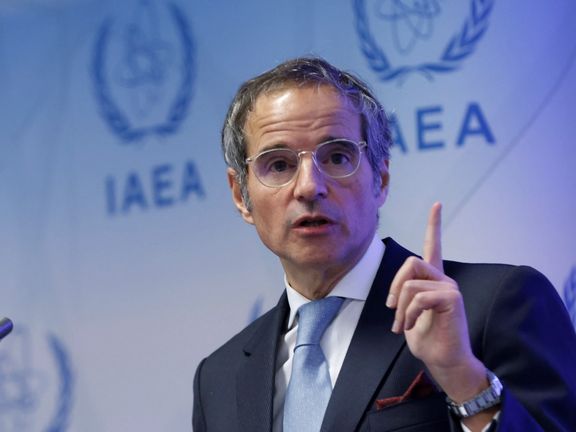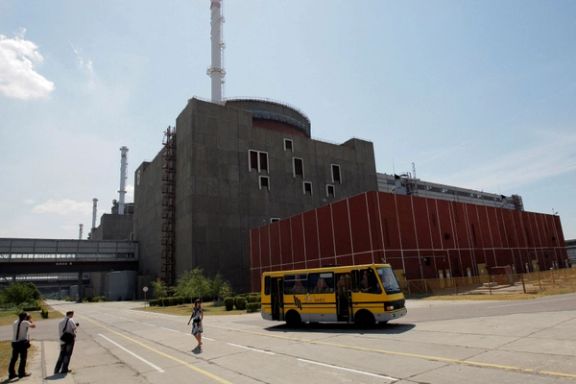Europeans Leave UN Nuclear Agency Meeting In Protest Over Russia

Tensions between the European Union and Russia blew up at the International Atomic Energy Agency board meeting Wednesday as the EU led a walkout.

Tensions between the European Union and Russia blew up at the International Atomic Energy Agency board meeting Wednesday as the EU led a walkout.
Stephan Klement, head of the EU delegation to the IAEA, tweeted that the move had been in “response to unacceptable remarks” by Russia. Klement condemned “Russian military aggression” against Ukraine and “resulting nuclear threats to safety of Ukrainian facilities.”
Klement did not tell Twitterati what the Russian had said. Neither did Reuters news agency in its initial report. Russian news media is now generally blocked in the EU.
In his report to the board Monday, IAEA chief Rafael Mariano Grossi highlighted “two major issues high on the international community’s agenda…the safety and security of Ukraine’s nuclear power plants amid the…military conflict, and second, making progress on the clarification of the outstanding safeguards issues” with Iran.
Russia in the 1990s withdrew all nuclear weapons from Ukraine, which had hosted a large part of the Soviet atomic arsenal, but Ukraine has several nuclear facilities, including the decommissioned Chernobyl plant, which is now occupied by Russian forces and has lost electric power, raising fears of a radiation leak.Ukraine’s state-run nuclear company Energoatom said Wednesday fighting between Ukrainian and Russian forces made it impossible to immediately repair the high-voltage power line to the plant.

Grossi expressed concern in his report Monday that the Zaporizhzhya nuclear power plant, also now under Russian control, been hit by a shall, causing a fire but no release of radiation.
Ukraine crisis, Iran talks
There has been rampant speculation over links between the Ukraine crisis and the Vienna talksover reviving the 2015 Iran nuclear agreement since Saturday when Russian foreign minister Sergei Lavrov said Moscow wanted assurances that Ukraine sanctions would not impact its economic and other ties with Iran, including its role in implementing the JCPOA, if a new agreement is reached.
Lavrov said that an “avalanche of aggressive sanctions that have erupted from the West − and which I understand has not yet stopped” meant Moscow needed a “guarantee that these sanctions will not in any way touch the regime of trade-economic and investment relations which is laid down in the Joint Comprehensive Plan of Action."
Playing down Lavrov’s concerns, the United States Secretary of State Antony Blinken Tuesday noted that Russia was “still engaged” in efforts to revive the JCPOA and stressed Washington’s and Moscow’s shared intertest in restricting Iran’s nuclear program.
In Vienna Wednesday, the US Deputy Chief of Mission to the IAEA Louis Bono told the board that Iran needed to answer agency questions over its nuclear work before 2003 as “a legal obligation separate from its JCPOA commitments.” Bono said that “significant concerns” over Iran’s responsibility for transparency under the Nuclear Non-Proliferation ‘safeguards’ rules “remain unresolved after more than two years because of Iran’s lack of substantive engagement.”
Bono welcomed the March 5 statement by Grossi and Mohammad Eslami, head of the Atomic Energy Organization of Iran, setting out a timetable by which Tehran would satisfy the agency over its queries by June 20. Bono cited Grossi in saying, “the only way these issues go away is if they are clarified to the full satisfaction of the IAEA.”
But he added, “We remain deeply concerned by the Director General’s reports that since February 2021 Iran has stopped implementing its Additional Protocol. This significantly impacts the ability of the Agency to provide credible assurance of the absence of undeclared nuclear material and activities in Iran.”